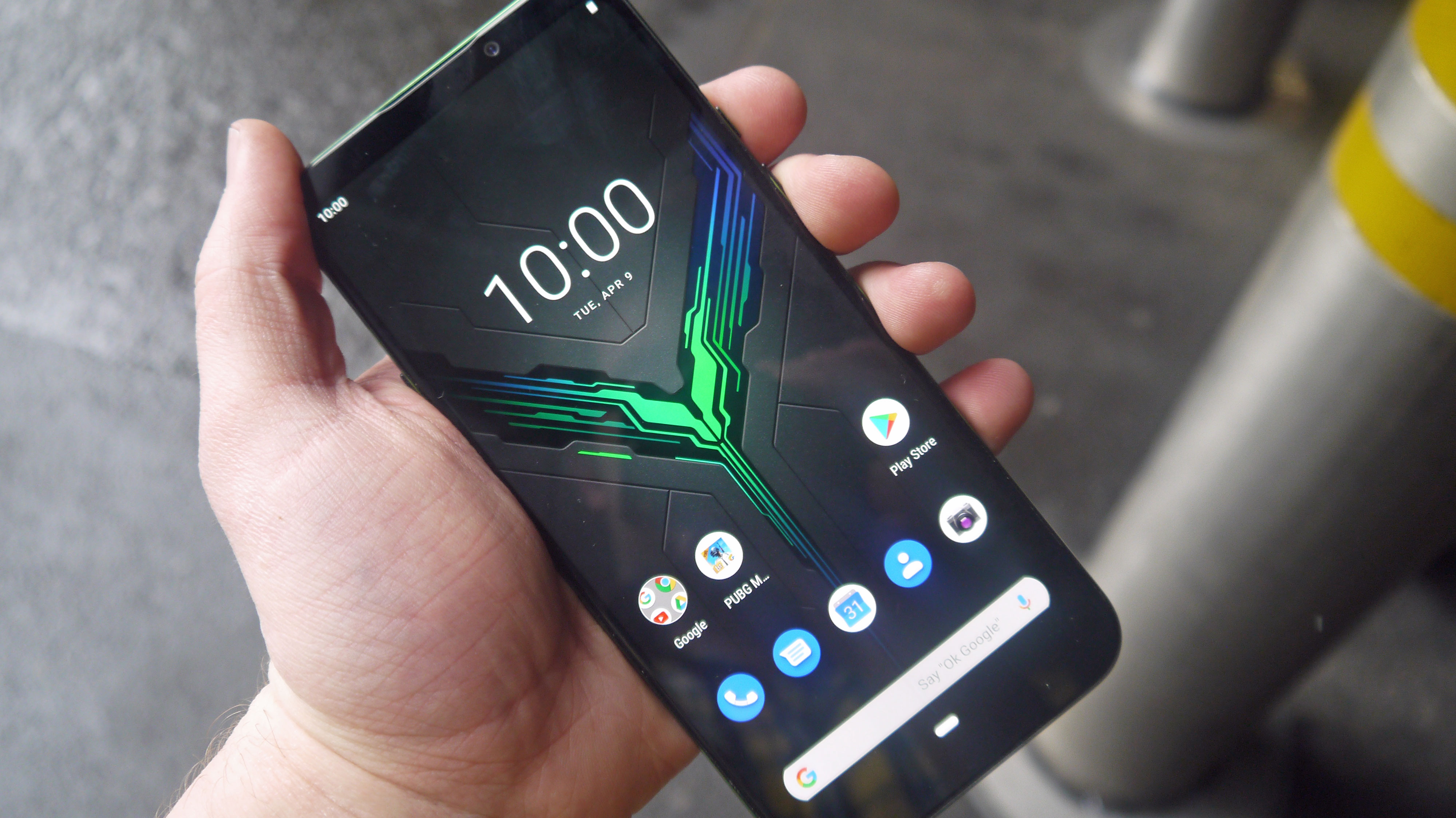Black Shark’s taking a surprising approach to cloud gaming
But could it work?

The Black Shark 2 launched in the UK on April 9. It boasts a powerful 8GB RAM, a cutting-edge chipset and huge battery potential (it’s designed specially to be a great gaming phone), but 2019 seems a turbulent time to launch a handset for this market, given that cloud gaming is around the corner.
When you use cloud gaming to play a mobile game, all the computing and processing is done by the cloud, and all your phone needs is a fast internet connection. This effectively makes powerful internals, like the Black Shark 2’s, redundant. With the recent release of 5G networks around the world, a quick internet connection is becoming more and more accessible, so cloud gaming can only get bigger.
- Is the Samsung Galaxy S10 Plus the best phone ever?
- The iPhone XS Max is one of the most powerful phones we've ever used
- One of our favorite gaming phones is the Samsung Galaxy Note 9
To understand how Black Shark would survive this dramatic change, we spoke to VP of Black Shark Global, David Li, at the Black Shark 2 launch – but his answer wasn’t what we expected.
Clouds on the horizon
The natural answer to ‘how do you keep a gaming phone competitive against cloud gaming’ would be to focus on features that cloud gaming can’t touch. Great-looking displays, comfortable-to-grip designs and booming audio are features that could make a device great to play on.
But according to Li, Black Shark doesn’t plan to try to compete with cloud gaming – it’s going to embrace it.

Li told us one of the most important features of future Black Shark phones is improved network connection, so that you can connect to data and Wi-Fi, and download games or play online at the quickest speeds possible.
We saw a demonstration of the Black Shark 2’s X+2 Antenna array, which has antennas in six locations about the device so that you’ll have a quick connection wherever your hands are on the phone. It's possible that future Black Shark phones could have even more.
Get daily insight, inspiration and deals in your inbox
Sign up for breaking news, reviews, opinion, top tech deals, and more.
When we asked about other ways Black Shark would stay ahead of the curve, Li told us that touchscreen latency was also an important feature, so that the phone was as responsive as possible for gaming. According to the company's tests, the Black Shark 2 is roughly 25% more responsive than the Samsung Galaxy S10, and by keeping latency competitive, future Black Shark devices could still be better for gameplay.
Looking into the future
We also asked Li about Black Shark’s plans in the future, and how different trends could bring new hardware changes.
He explained that Black Shark was indeed looking into 5G, and that we can expect a Black Shark 5G before the inevitable Black Shark 3 – and since there was only a six month gap between the Black Shark 2 release and the original Black Shark, that means we could see the 5G gaming phone before the end of the year.

Li wasn’t as optimistic on foldables. He told us the tech wasn’t mature enough yet, so Black Shark will only look into it if it provides a better gaming experience for users.
We also briefly spoke to him about the future of mobile gaming itself. Demos we saw of the Black Shark 2 focused on PUBG Mobile, which runs on basically any device with a screen, and Li admitted that most high-end mobile games so far are ports of popular PC or console games, like PUBG Mobile, Fortnite, and XCOM: Enemy Within. However, that might change.
As well as looking at the present of mobile gaming, Black Shark is apparently working with big developers like Tencent (of PUBG fame) to make sure its mobiles will be great at playing their future releases too, so soon your handset could play high-end games that are unavailable on other platforms.

Tom Bedford joined TechRadar in early 2019 as a staff writer, and left the team as deputy phones editor in late 2022 to work for entertainment site (and TR sister-site) What To Watch. He continues to contribute on a freelance basis for several sections including phones, audio and fitness.